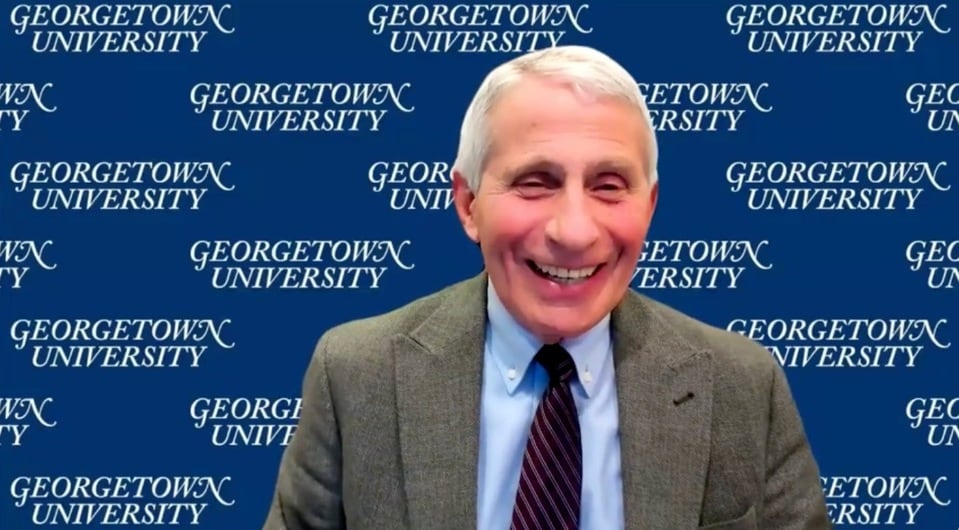News | Academics
Anthony Fauci speaks at virtual SPS fireside chat
The former medical advisor discussed his career in public health and service to the office of the presidency.

By Colette Holcomb / Courtesy ofDr. Robert Klitzman, the program director of bioethics at Columbia University Irving Medical Center, moderated the event.By Colette Holcomb • February 4, 2025 at 3:40 AM
By Colette Holcomb • February 4, 2025 at 3:40 AM
Anthony Fauci, former chief medical advisor to former President Joe Biden, spoke at a virtual event hosted by the Columbia Bioethics Program at the School of Professional Studies on Thursday.
Robert Klitzman, the program director of bioethics at Columbia University Irving Medical Center, moderated the event titled, “A Fireside Chat with Anthony Fauci, M.D.” Fauci discussed his work as an immunologist and advisor to seven presidents on public health issues, including navigating tensions with President Donald Trump over the response to the COVID-19 pandemic.
Fauci’s career, which initially focused on the development of drugs for autoimmune and autoinflammatory diseases, took a turn in the summer of 1981, when he saw the first cases that led to the identification of HIV. The experience led him to center his research exclusively around these patients, who were primarily young gay men.
He described one of the most challenging moments in his career as having to “publicly disagree with the president of the United States” during the COVID-19 pandemic.
“I’m not a Democrat or a Republican, I’m a scientist and a public health person. But during the time of the COVID pandemic, I was in the very uncomfortable position that I had to to fulfill my responsibility to the American public,” Fauci said. “It was very painful for me to do that because I have a great deal of respect for the office of the presidency of the United States,” he added.
Klitzman asked Fauci about this experience and how he had the “courage to stand up for science.”
“It was just a conviction that you have to stick with the truth that’s based on science and evidence and data, and once you veer off from that, it’s kind of like a slippery slope where you lose respect for yourself, and people lose respect for you,” Fauci said. He described being called “public enemy number one” for trying “to tell the truth.”
Looking forward, Fauci stressed the need for improved public health infrastructure and science literacy—particularly combating disinformation—to safeguard public health and better prepare for future pandemics, emphasizing that health should not be politicized.
“I had the unique experience of being able to advise—to a greater or lesser degree—seven presidents, and it just emphasizes to me that ideological differences are good if it doesn’t lead to profound hostility and divisiveness,” Fauci said.
Staff Writer Colette Holcomb can be contacted at colette.holcomb@columbiaspectator.com. Follow her on X @coletteyama.
Want to keep up with breaking news? Subscribe to our email newsletter and like Spectator on Facebook.
More In News
Editor's Picks

